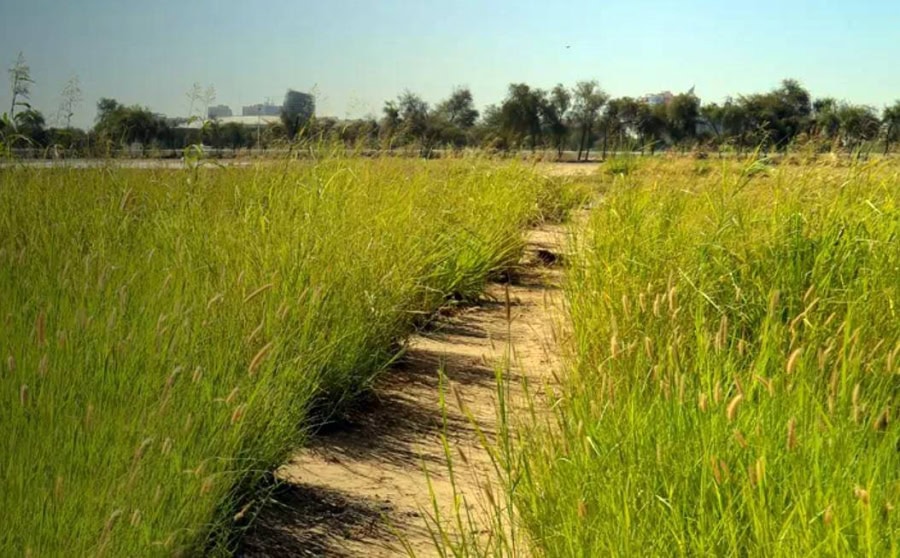KARACHI – Biodiversity conservation, sustainable agriculture, and fish farming ventures are spearheading transformative change in Tharparkar, uplifting communities through food security and livelihood generation.
Sindh Engro Coal Mining Company’s (SECMC) biosaline agriculture initiative, launched in 2016, has successfully cultivated 16 edible plant varieties using underground saline water from the coal mines.
These saline-tolerant crops, including apple berries, livestock fodder and aloe vera, are thriving in Thar’s harsh conditions.
Harnessing the expertise of conservation experts from IUCN and academics from Karachi University, SECMC has empowered over 100 members of the local community through comprehensive training in biosaline agriculture, fostering sustainable livelihoods and fostering harmony with the delicate desert ecosystem.
Additionally, the biosaline fish farming at Gorano Lake has created a flourishing ecosystem for over 10 fish species-Morakhi, Rohu, Theli, Kuriro, Gulfam, African Catfish, and Dangri-that contribute to local nutritional needs.
The project has distributed over 70,000 kg of fish and provided vital fodder to 14,500 families during severe drought.
Gorano has also emerged as a critical wetland habitat for more than 425 migratory birds, demonstrating SECMC’s commitment to ecological conservation.
“Our unwavering focus on sustainability and climate resilience continues to drive these groundbreaking initiatives, creating pathways for food security and socioeconomic uplift in Tharparkar,” emphasized Amir Iqbal, CEO SECMC.
A recently concluded IUCN study, conducted in collaboration with SECMC, discovered over 1,000 species of flora and fauna, some previously unknown, in the region.
The proposed conservation strategies will pave the way for harmonious co-existence of biodiversity and local communities.
SECMC’s multifaceted sustainability projects champion the vision for an ecologically thriving and socioeconomically vibrant Thar.










